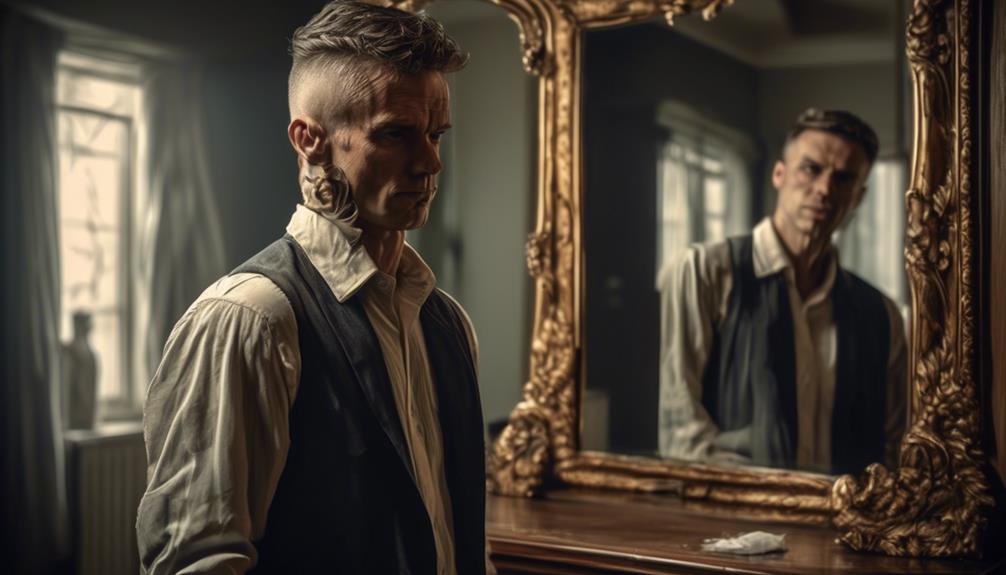Have you ever found yourself dissecting a friend’s behaviors, wondering if there’s more to it than meets the eye? Understanding the complexities of human relationships can be challenging, especially when trying to decipher the subtle cues that reveal someone’s true character.
When it comes to friendships, the dynamics can be intricate, and sometimes, behaviors may raise red flags. Exploring the topic of covert narcissism within friendships can shed light on some of these puzzling aspects, potentially offering insights that could make a significant difference in how we navigate our social connections.
Key Takeaways
- Subtle behaviors and patterns may indicate covert narcissism in friends.
- Covert narcissists may mask self-centeredness with humility and self-deprecation.
- Covert narcissists manipulate situations for personal gain and employ passive-aggressive strategies.
- Assessing relationship dynamics and protecting well-being is crucial in navigating relationships with covert narcissists.
Signs of Covert Narcissism in Friends
When observing our friends for signs of covert narcissism, it's vital to pay attention to subtle behaviors and patterns that may indicate underlying narcissistic tendencies. Covert narcissists are adept at manipulating others to make themselves feel superior, often through subtle means that can be challenging to detect.
They may exhibit a sense of entitlement, a need for admiration, and a lack of empathy towards others, all while presenting a facade of modesty and humility.
Dealing with a covert narcissist in a friendship can be complex and emotionally draining, as their manipulative tactics are often veiled under a guise of care and concern. It's crucial to set boundaries and communicate openly about any concerning behaviors, while also being mindful of their potential for explosive reactions when their fragile self-esteem is threatened.
Identifying Covert Narcissistic Traits

In identifying covert narcissistic traits, one must closely observe subtle behaviors and patterns that reveal underlying narcissistic tendencies. Covert narcissists, contrary to overt ones, often mask their self-centeredness with a facade of humility and self-deprecation. They manipulate situations to fulfill their own desires, showing a lack of empathy and a tendency to exploit others for personal gain.
These individuals may employ passive-aggressive strategies, sarcasm, and subtle undermining tactics to maintain a sense of control and power over those around them.
Furthermore, covert narcissists tend to portray themselves as victims, seeking sympathy and validation while deflecting any responsibility for their actions. They exhibit behaviors such as jealousy, attention-seeking, and a constant need to compare themselves to others to boost their own sense of superiority.
Behavior Patterns to Watch for
Moving from identifying covert narcissistic traits to behavior patterns to watch for, we can discern subtle cues that reveal underlying narcissistic tendencies in individuals. When assessing if your friend displays behaviors aligning with covert narcissism, observe the following indicators:
- Excessive self-focus and little attention to others: A Narcissist Friend may dominate conversations, redirect discussions to themselves, and show disinterest in the emotions or experiences of others.
- Belief that their way of thinking is the only correct way: Individuals with covert narcissism often exhibit rigid thinking patterns, dismissing alternative perspectives and asserting their opinions as superior.
- Reacting to acts of kindness with boasting or seeking admiration: Instead of appreciating gestures of kindness, a covert narcissist might use them to elevate their self-image or seek validation from others.
Analyzing Interactions With Your Friend

To gauge whether your friend exhibits covert narcissistic behaviors, closely observe how they interact within your friendship. Pay attention to how much of your time together revolves around them. Do you often hear them talking about themselves while showing little interest in what you have to say? Grandiose narcissists tend to believe their opinions are superior and may dismiss or belittle the thoughts of others. Notice if your friend always insists on their way of thinking being the only correct way, as this could indicate underlying narcissistic traits.
Furthermore, analyzing interactions with your friend involves reflecting on how they handle acts of kindness. Do they seek admiration or boast about their good deeds, turning gestures of friendship into opportunities for self-promotion? Also, consider if your friend reciprocates the same level of care and support that you provide, or if the friendship seems one-sided, benefiting them more.
Lastly, observe how disagreements are managed. Do they resort to personal attacks or become defensive when their actions are challenged? These behaviors could hint at covert narcissistic tendencies and provide insight into the dynamics of your friendship.
Assessing Your Relationship Dynamics
Through careful observation and thoughtful reflection, we can better understand the intricacies of our relationship dynamics with individuals who may exhibit covert narcissistic traits. When assessing your relationship dynamics with a potential covert narcissist friend, it's essential to consider the following:
- Emotional Rollercoaster: Covert narcissists often make you feel like you're on an emotional rollercoaster, with unpredictable highs and lows that leave you questioning your feelings and perceptions.
- Constant Criticism: They may consistently make you feel like you're on the wrong side, no matter what you do, always finding fault and rarely acknowledging anything nice or positive about you.
- Manipulative Behavior: Assessing your relationship dynamics involves recognizing subtle manipulative behaviors, such as guilt-tripping, gaslighting, or playing the victim to make you doubt yourself and your perceptions.
Being attuned to these dynamics can help you navigate relationships with potential covert narcissists more effectively and protect your well-being.
Frequently Asked Questions
How Do You Tell if Your Friend Is a Covert Narcissist?
When trying to determine if a friend is a covert narcissist, observation is key. Look for patterns of behavior such as lack of empathy, manipulation, and playing the victim.
Subtle signs like passive-aggressive actions and constant need for attention are common. Remember, identifying covert narcissism can be challenging due to their ability to appear humble and empathetic.
Trust your instincts and pay attention to how they make you feel in the relationship.
How Do You Test if Someone Is a Covert Narcissist?
Testing for covert narcissism can involve observing patterns of behavior over time, looking for signs like manipulation and lack of empathy. It's like peeling back layers of an onion, revealing subtle yet impactful traits.
How Does a Covert Narcissist Act in a Friendship?
In friendships, covert narcissists often display manipulative behaviors masked by a facade of modesty. They may lack empathy in conflicts, responding defensively or with personal attacks. These individuals tend to have hidden agendas, subtly diminishing others' self-esteem and achievements while maintaining control through stubborn actions.
Recognizing these traits can help protect ourselves from being manipulated, fostering healthier relationships built on mutual respect and understanding.
What Sneaky Things Do Covert Narcissists Do?
We often notice covert narcissists engaging in subtle manipulation tactics. They excel at creating a facade of kindness while subtly undermining others.
These individuals may gaslight, manipulate through guilt, or play the victim to garner sympathy. Their actions are calculated to maintain control and feed their ego without overtly displaying narcissistic traits.
It's crucial to recognize these sneaky behaviors to protect ourselves from their harmful influence.
Conclusion
In conclusion, taking the 'Is My Friend a Covert Narcissist Quiz' can provide valuable insights into your friendship dynamics.
Remember, 'actions speak louder than words.' By analyzing behaviors and patterns, you can better understand if your friend exhibits traits of covert narcissism.
Trust your instincts and seek support if needed. Understanding these dynamics can help you navigate your friendship in a healthier way.










